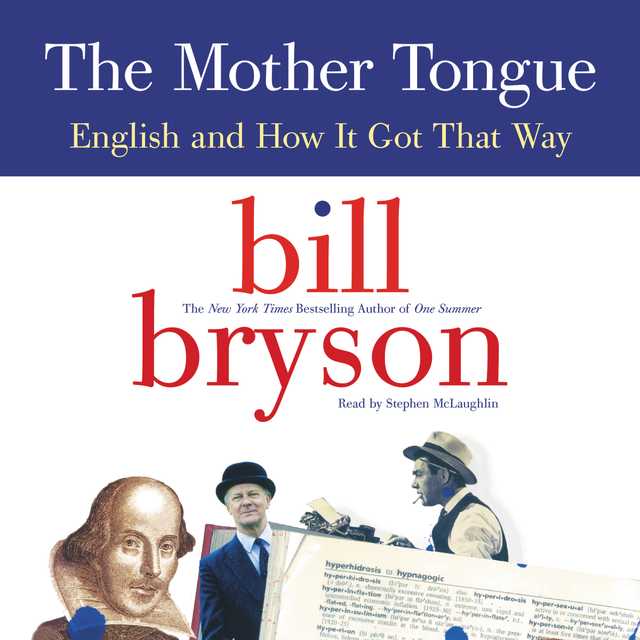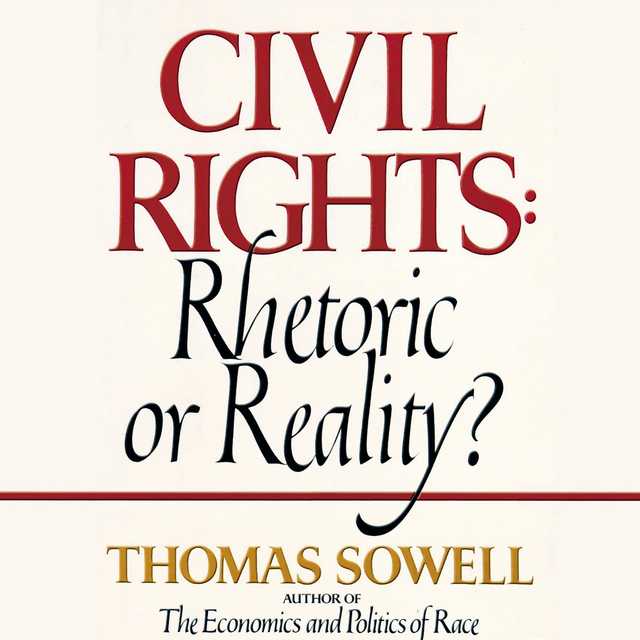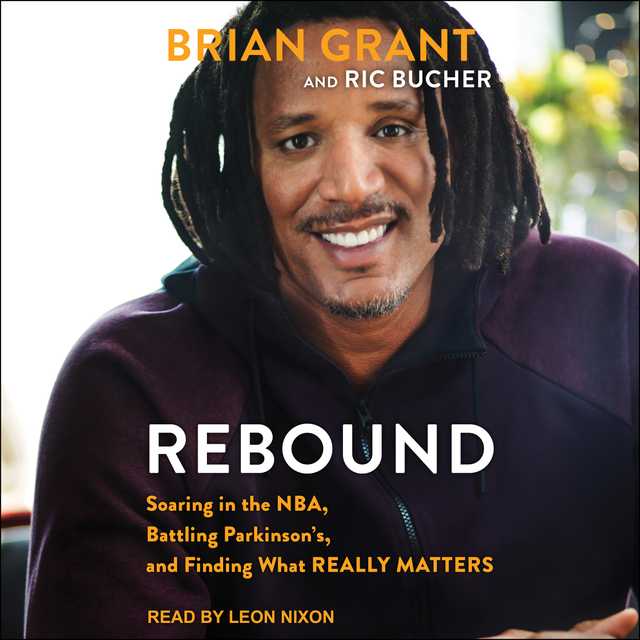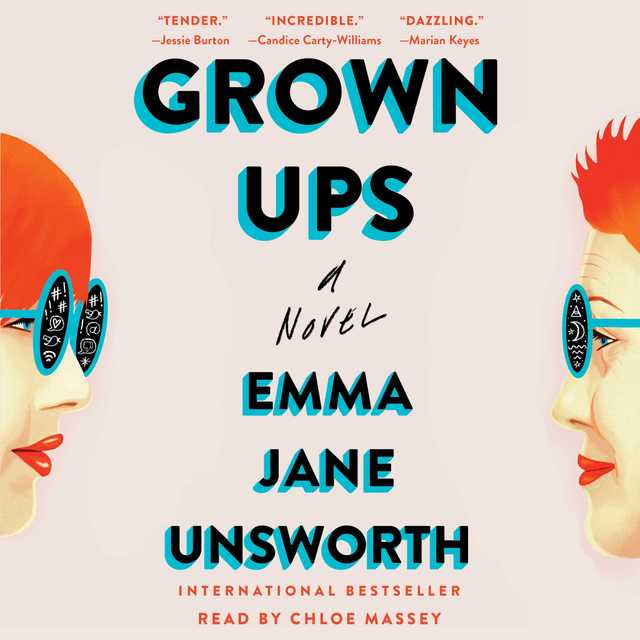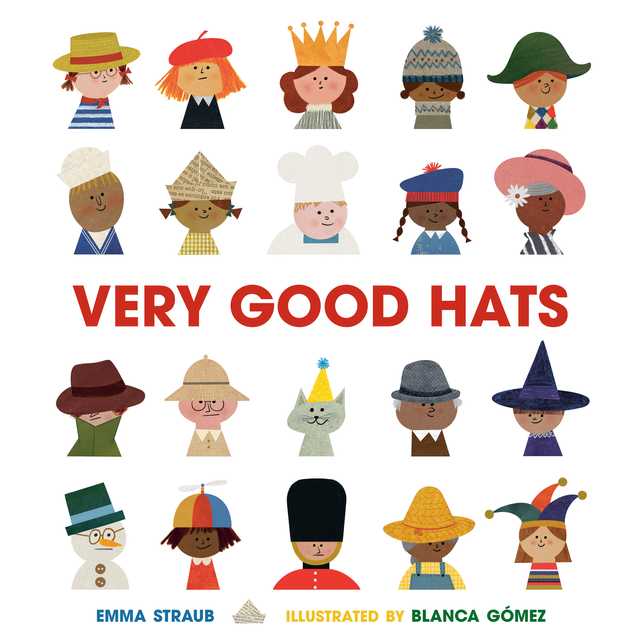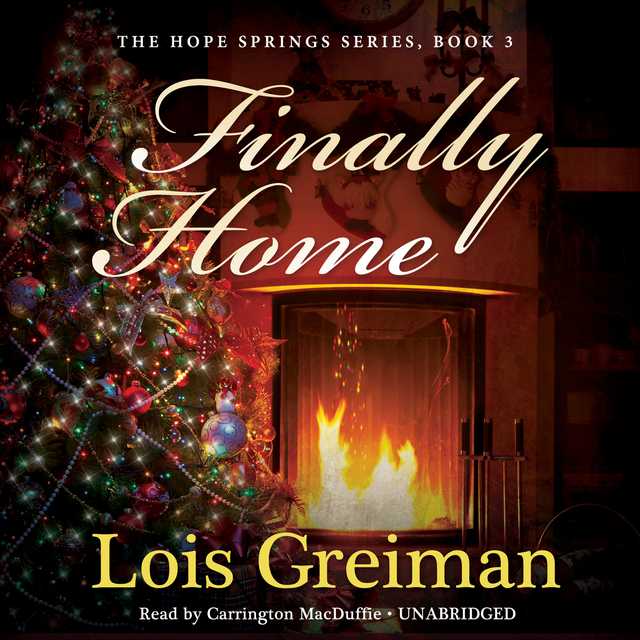The Mother Tongue Audiobook Summary
With dazzling wit and astonishing insight, Bill Bryson–the acclaimed author of The Lost Continent–brilliantly explores the remarkable history, eccentricities, resilience and sheer fun of the English language. From the first descent of the larynx into the throat (why you can talk but your dog can’t), to the fine lost art of swearing, Bryson tells the fascinating, often uproarious story of an inadequate, second-rate tongue of peasants that developed into one of the world’s largest growth industries.
Other Top Audiobooks
The Mother Tongue Audiobook Narrator
Stephen McLaughlin is the narrator of The Mother Tongue audiobook that was written by Bill Bryson
Bill Bryson's bestselling books include One Summer, A Short History of Nearly Everything, At Home, A Walk in the Woods, Neither Here nor There, Made in America, and The Mother Tongue. He lives in England with his wife.
About the Author(s) of The Mother Tongue
Bill Bryson is the author of The Mother Tongue
More From the Same
- Author : Bill Bryson
- A Walk in the Woods
- A Short History of Nearly Everything
- One Summer
- In a Sunburned Country
- At Home
- Publisher : HarperAudio
- Abraham
- American Gods [TV Tie-In]
- Dead Ringer
- House of Sand and Fog
- Prey
Additional info
The publisher of the The Mother Tongue is HarperAudio. The imprint is HarperAudio. It is supplied by HarperAudio. The ISBN-13 is 9780062458537.
Global Availability
This book is only available in the United States.
Goodreads Reviews
Nandakishore
August 27, 2018
Ever since I learned to read, English has been my favourite language - I took to it like a duck takes to water (at least, I guess they take to it willingly, and that baby ducks are not paddled until their feathers fly by Mamma Duck to make them). This was the cause of the eternal chagrin of my mother who, being a staunch nationalist, wanted me to prefer Hindi over English. She recited to me a famous couplet in Malayalam, which said:"Other languages are merely nannies;For man, the native tongue is the mother."I replied that in that case, Malayalam is my mother, and both Hindi and English are nannies. And I just happened to prefer my English nanny over my native one. She had no answer to that!Well, I am glad I stuck to English over Hindi, because this is one crazy nanny - totally idiosyncratic and eccentric, just like me. And to tell you how eccentric, who better than Bill Bryson?If you approach this book hoping for a scholarly analysis of the English language, you are going to be sorely disappointed. For that don't come to old Bill. What he does is to throw out titbits (or tidbits in the US, as they the consider the former spelling risque - so Bryson tells me) of information, some useful, some useless, some bizarre: but all fascinating. One thing you can be sure of - you won't be disappointed.This book is a linguistic, historical and geographical romp through English wherein Bill tackles such varied subjects as1. The origin and spread of English2. The evolution of words3. Pronunciation4. Spelling5. The varieties of English, both inside the UK and outside6. Dictionaries and their producers7. Where names come from8. Profanity9. Wordplay... and much more.There is not a single boring sentence. You are guaranteed to be snickering throughout.
Julie (jjmachshev)
July 16, 2008
What a hilarious, fascinating, and educational look at our wacky, wonderful, and WAY complicated language. If English is your mother tongue, this book will amaze and amuse you with interesting tidbits about just how our language evolved into the wonder it is. If you had to learn English as a second language (and more power to you), then bless your heart for taking on the task. You will read this book, and say YES, absolutely, I always wondered..., etc. Bill Bryson turns his sharp-eyes to "The Mother Tongue" and takes us all on a fabulous journey through and overview of the intricacies of human language. You will laugh, smile, and learn a few things while you're at it!!!
Emma
May 03, 2019
Surprisingly, I didn’t find this as engaging as his other books.
Peter
March 20, 2009
I'm a writer, and I don't hold with slam-dunking other writers in print, because they can't reply. In a more open medium like this, I am prepared to serve Bryson as he serves others, but with a little less barren pedantry.It's an excellent book, but like so many foreigners, Bryson thinks a quick tour makes him an expert on all things Australian. WRONG!!We don't say cookie, we say biscuit. Getting that wrong is clumsy.We don't normally say "labor", we call it labour. The sole exception is in the name of the Australian Labor Party, which adopted that spelling in the 19th century.Bomboras are in the sea, not in rivers, a didgeridoo is not a form of trumpet, and outback is not an Aboriginal word (though bombora is), and we don't normally say "technicolour yawn": it was a joke put forward by Barry Humphries, not common usage.I could go on and demolish his assertions about the Australian accents (he seems to think that any one of us speaks one, only) and if somebody is going to be arch about other people's proofing, page 139, the first page of chapter 10 needs to be looked at HARD.I like the book, I just didn't appreciate the superior tone of somebody who is, like the rest of us, inclined to slip from time to time.
Bob
May 05, 2015
Mother Tongue: The English Language, by Bill Bryson, London: Penguin Books, 1990 (link is to a different, in-print edition).Summary: This amusing and informative book surveys the history of the English language and all its vagaries and perplexities of word origins, spellings, and pronunciations and why it has become so successful as a world language.Has it every occurred to you how many different meanings there are for the word fly? It can be an insect, a means of travel, a verb form of "to flee", something a fisherman ties, one of the results of a batter hitting a baseball, or something no man wants open in public. As in so many of Bryson's books, he had me at the opening page as he explored some of the perplexities of our language that native speakers negotiate almost without thought. He had me in the first chapter as he proposed that part of the success of the language is the incredible richness of vocabulary (at the time of publication, the OED had 615,000 words), flexibility of usage, and relative simplicity, particularly in comparison to tonal languages of rendering the language in print.He surveys the history of language, the world's language families and where English is situated in the Indo-European stream, and all the other offshoots, some which are no longer living languages. He recounts the triumph of Anglo-Saxon language over Celtic (even though many of England's place names preserve their Celtic roots), the impact of the Norman invasion (of 10,000 words, approximately 3/4ths are still in use including much of the language of nobility (duke, baron prince) and much language of jurisprudence (justice, jury, prison among others). He explores the different ways words are created, sometimes by doing nothing! His discussion of pronunciation and particularly the shifts in vowel sounds was fascinating, For example house was once pronounced hoose. You weren't born in a barn but barn in a born.Then there is the matter of spelling and the role of printing and dictionaries in bring a greater if not complete uniformity to spelling--is it ax or axe, judgment or judgement (it is fascinating that the spell check in this word processor highlighted the latter of these two, and yet both are accepted with the shortened forms preferred). Of course so much of this discussion is the concern of some to promote the good and proper use of the language, and yet what is fascinating is the shifting ideas through history of what this is, according to Bryson. Similarly, we have the divergences between New World and Old and some wonder whether American English will become a distinct language.Bryson's concluding chapters explore the origins of proper names, our propensity for wordplay, and the history of what are now considered vulgarities (although I think since Bryson wrote, what was censored in from public media in my youth is becoming more and more common). What is fascinating is that many of these were once in common parlance in Chaucer and Shakespeare. Equally fascinating are our various forms of wordplay, the ultimate of which must be the palindrome where a sentence says the same thing forwards and backwards (an example from the book: "A man, a plan, a canal, Panama.")Anyone who writes can understand the challenges of finding the right rather than the almost right word, and how easy it is to think you are saying one thing only to be understood by others as saying the opposite. I found Bryson's book a delightful diversion that better helped me understand both the joy of using this language and the frustrations of rendering the conceptions of mind into words that communicate.
James
June 26, 2017
This is a good, concise, erudite, readable over-view of the history, present and future of the English language. Bryson is a funny man and a witty writer and this book ranges from the first recorded sentence in English - "This she-wolf is a reward to my kinsman" - to Cockney rhyming slang, though palindromes, anagrams and the politics of spelling. Recommended to anyone with any interest in our weird, wonderful, ever-evolving mother tongue.
Charity
April 28, 2008
Did you know that drumstick was coined in the 19th century because polite society could not bring itself to utter the word leg? Or that Shakespeare gave us no less than 1700 new words including barefaced, frugal, dwindle, and summit?Bill Bryson, an American transplanted to England, traces the history of English on both sides of the Atlantic. He explains the evolutionary accident that altered the human larynx and enabled us to speak. He traces the origins of English's naughtiest words, and offers a paean to that extraordinarily versatile American contribution to the language: O.K. A smart, funny, irreverent overview of English. Although, I strongly feel that some parts were much more engaging than others. And, unfortunately, this book is pretty dated (pre-internet/World Wide Web), so many of the statistics are no longer accurate (in fact, that is the main reason I am giving this book 4 stars instead of 5). However, the extensive research into the history of the English language makes The Mother Tongue an asset to any reference shelf.>>When Bryson was discussing the simplification of the English language, I couldn't help but think of the newspeak language in George Orwell's 1984...'no need for good and bad when you can just have good and ungood .'There is a rather funny reference to the horrible orations of George Bush Sr. and Dan Quayle. I wonder what Bryson would have to say about George W. Bush's bumblings.With all the 'real English' versus 'Americanisms' talk in the book, I kept thinking about John Cleese's Letter to America, which is absolutely hilarious.
Darcy
December 29, 2015
As a language lover, The Mother Tongue is fun and informative. I read this for my college rhetoric class, and fell in love with the enjoyable read with knowledge worthy of an upper level college English class. Bryson's true gift is in making the nature of linguistics both understandable and relevant. The author has fun playing with words - I laughed out loud multiple times. The best chapter is the one on what is considered obscene language, not because it feels good to curse, but because it increases your cultural awareness and empathy to think about how a conquering nation determines what words are proper and what words are vile. It might make you think twice before you correct the way someone speaks with a regional dialect. Bryson isn't about prescriptive grammar and language elitism, but about exploring the nature of human communication. Should we really isolate someone because they speak differently than we do? Language is a natural and essential aspect of the human condition and the more you know about language evolution and acquisition, the more you should appreciate the diversity of successful communications.
Jimmy
August 22, 2020
The book may be a bit dated now and some of the facts may not be accurate, but what a fun read. Other mammals have no contact between their airways and esophagi. They can breathe and swallow at the same time. No possibility of food going down the wrong way. With Homo sapiens, food and drink must pass over the larynx on the way to the gullet. Constant risk that some of it will be inhaled. The larynx descends in humans between the age of 3 and 5 months, the exact age when Sudden Infant Death occurs. But the descended larynx explains why we can speak and our pets cannot. That ability to speak made such a difference in our evolution. The word "pease" in "pease porridge hot" was singular. But people thought it was plural, so "pea" back then formed as a singular. In "Pippa Passes," Robert Browning uses the word "twat," which meant the same thing then as it does now, but he did not realize it. He thought it was a nun's hat instead of a nun's. . . .well you know. Although English is a Germanic language, we have borrowed fewer words from German than almost any language. No one has any idea how the word "dog" came to replace the word "hound." Gutenberg may have gotten more credit than he deserves for inventing the printing press. He learned of the process when an apprentice of Laurens Koster ran off with some of his blocks. Well meaning people added "b" to "doubt" and "debt" to keep it more like the Latin. Same with the "p" in "receipt." The last words of French grammarian Dominique Bonhours: "I am about to--or I am going to--die; either expression is used." Noah Webster produced a sanitized version of the Bible. In it, men have "peculiar members" instead of testicles, and women do not have wombs or anything else with which to contribute to the reproductive process. Such a fear of the human body. Where does it come from? The Oxford English Dictionary insists that Shakespeare should be spelled Shakspere. They add that the commonest spelling "is perh. Shakespeare." Bryson adds "it cert. is." The last name Bush came from wine merchants always having a bush by the front door. Goldwater was a synonym for urine. He has a great list of place names from America, including Maggie's Nipples, Wyoming. In 1970 under test conditions, Roy Dean solved the London Times crossword puzzle in 3 minutes and 45 seconds. An unbelievable feat. Alfred Butts invented the game Scrabble in 1931. He insisted on two of each letter, so q, j, and z can be a problem. He deliberately depressed the number of s's. He increased the number of i's to encourage the use of suffixes. The highest score in 1987 was 3,881 points. It included the word psycholoanalyzing for 1,539 points. A list of anagrams: Ronald Wilson Reagan = Insane Anglo Warlord Spiro Agnew = Grow a Penis two plus eleven = one plus twelve Western Union = No Wire Unsent circumstantial evidence = can ruin a selected victim funeral = real fun The Morse Code = Here come dots mother-in-law = woman Hitler Victoria, England's Queen = governs a nice quiet land William Shakespeare = We all make his praise In Chinese, to call someone a turtle is the worst possible taunt. The Japanese have no swear words at all. The Romans had 800 swear words.
Mary
December 29, 2020
Whew, dense and difficult to get through which is why I read it off and on for a year, but fascinating. Some great stuff I’ll remember and a lot I’ll forget because there were so many examples for every point.
Corrielle
February 29, 2008
I am an English teacher. I like grammar. It fascinates me. I like knowing big words and little words and word histories and word games. Being at a computer with access to the online version of the OED (Oxford English Dictionary) can provide me with endless hours of amusement. So, this book was a treat for me. Bill Bryson writes with an exuberance and excitement about what English (and language in general) is capable of that is infectious and uplifting. Though it is not a comprehensive history of the English tongue, it does drop in at key moment and point out some of the really interesting, weird, trivial tidbits. At the same time, he recognizes some of the strange idiosyncrasies of English that make it ridiculously difficult for non-native speakers to learn. Unlike other pieces on English I've read that are uncomfortably superior sounding, this one points out some of the places where other languages can easily express concepts that English speakers don't have precise words for. I also learned that a lot of the rules we hapless grammar teachers try to impart to our students have somewhat dubious origins. For instance, I learned that using a preposition at the end of a sentence, as I have just done a couple of sentences before, is only considered improper because a fellow who wrote an influential book on grammar in England decided HE thought it sounded common and ungraceful. I was also fascinated by all of the words that were once common in Britain that have fallen out of use there, are still in use here, and are now viewed as "Americanisms." In fact, the section on the "drift" between various English speaking countries was very neat. I knew a lot of the Brit-speak already (thank you, year in London and Age of Sail fandom...) but I really liked the argument that British English, Australian English, and American English aren't drifting apart as fast as they might because of the ease of communication and the media shared between the countries. It made a lot of sense to me.Anyway, I found this to be a useful, witty, fun collection of facts and oddities concerning English.
Angus
February 22, 2018
I might be a bit biased on this one because I love books about language, language development, and language evolution. However it was chock-full (and likely had the story behind and the source of this phrase) of great details and tidbits (previously the more offensive titbits) related to everything from the source of words, to spellings, and pronunciations. Fascinating how our language has changed through the years into what we see today. Presents the pros and cons of the language; discusses the aspects that have been simplified and those that have been left obscure and confusing. Loved it.
Frequently asked questions
Listening to audiobooks not only easy, it is also very convenient. You can listen to audiobooks on almost every device. From your laptop to your smart phone or even a smart speaker like Apple HomePod or even Alexa. Here’s how you can get started listening to audiobooks.
- 1. Download your favorite audiobook app such as Speechify.
- 2. Sign up for an account.
- 3. Browse the library for the best audiobooks and select the first one for free
- 4. Download the audiobook file to your device
- 5. Open the Speechify audiobook app and select the audiobook you want to listen to.
- 6. Adjust the playback speed and other settings to your preference.
- 7. Press play and enjoy!
While you can listen to the bestsellers on almost any device, and preferences may vary, generally smart phones are offer the most convenience factor. You could be working out, grocery shopping, or even watching your dog in the dog park on a Saturday morning.
However, most audiobook apps work across multiple devices so you can pick up that riveting new Stephen King book you started at the dog park, back on your laptop when you get back home.
Speechify is one of the best apps for audiobooks. The pricing structure is the most competitive in the market and the app is easy to use. It features the best sellers and award winning authors. Listen to your favorite books or discover new ones and listen to real voice actors read to you. Getting started is easy, the first book is free.
Research showcasing the brain health benefits of reading on a regular basis is wide-ranging and undeniable. However, research comparing the benefits of reading vs listening is much more sparse. According to professor of psychology and author Dr. Kristen Willeumier, though, there is good reason to believe that the reading experience provided by audiobooks offers many of the same brain benefits as reading a physical book.
Audiobooks are recordings of books that are read aloud by a professional voice actor. The recordings are typically available for purchase and download in digital formats such as MP3, WMA, or AAC. They can also be streamed from online services like Speechify, Audible, AppleBooks, or Spotify.
You simply download the app onto your smart phone, create your account, and in Speechify, you can choose your first book, from our vast library of best-sellers and classics, to read for free.
Audiobooks, like real books can add up over time. Here’s where you can listen to audiobooks for free. Speechify let’s you read your first best seller for free. Apart from that, we have a vast selection of free audiobooks that you can enjoy. Get the same rich experience no matter if the book was free or not.
It depends. Yes, there are free audiobooks and paid audiobooks. Speechify offers a blend of both!
It varies. The easiest way depends on a few things. The app and service you use, which device, and platform. Speechify is the easiest way to listen to audiobooks. Downloading the app is quick. It is not a large app and does not eat up space on your iPhone or Android device.
Listening to audiobooks on your smart phone, with Speechify, is the easiest way to listen to audiobooks.

